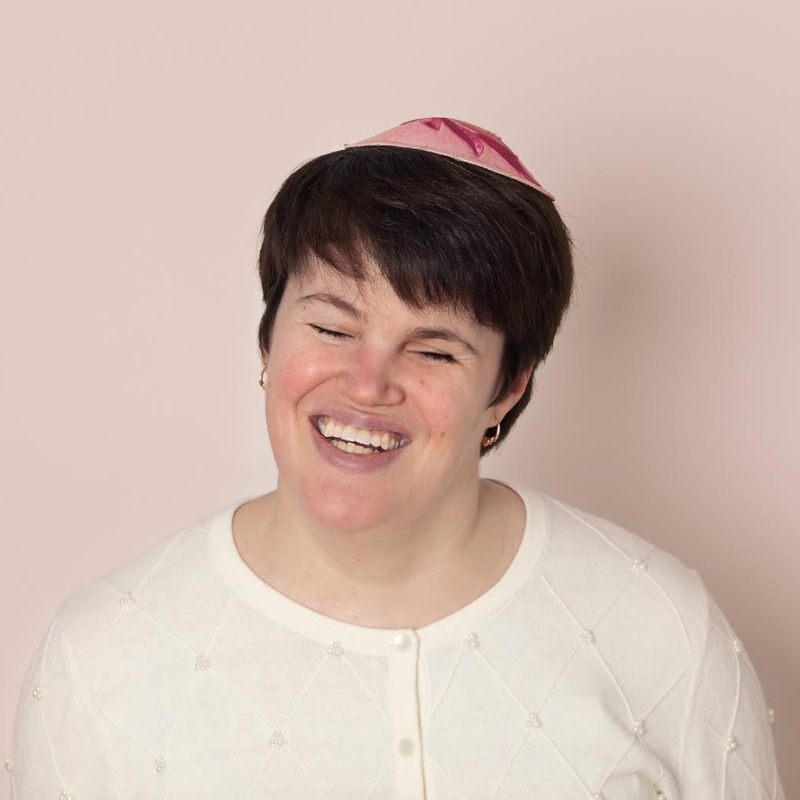The central grand story of the Jewish tradition is undoubtedly the Exodus from Egypt. We end our observance of the holiday by re-reading the story of the splitting of the Sea of Reeds, when the Israelites faced a profoundly unnavigable obstacle. This moment is traditionally considered the greatest miracle to have occurred for the Jewish people. But the story doesn’t end there.
The people begin to express fear and displeasure, as the Torah describes. “In the wilderness, the whole Israelite community grumbled against Moses and Aaron. The Israelites said to them, ‘If only we had died by the hand of Adonai in the land of Egypt, when we sat by the fleshpots, when we ate our fill of bread! For you have brought us out into this wilderness to starve this whole congregation to death.’” (Exodus 16:2-3)
In just a month, the Israelites have forgotten the miracle and are caught in a cycle so many of us know intimately. Change is hard, and one can only imagine that this is even more true for those who have been deprived of agency over their lifetime. In response, God tells Moses that God will rain down manna from the sky to see if the people will have the requisite trust to go out and gather it. In this way, the people will know in their bones that it was God who brought them out of Egypt and that they need not fear nor strive for control which is so often out of reach.
Find more resources for Passover 2025.
At a time of tremendous uncertainty and anger, many of us find ourselves ceaselessly striving for certainty and control. Though we know deep down there are no guarantees, the future before us feels so perilous and the present so unbearable that it is understandable that we are doing all we can to create some semblance of certainty. Like the Ancient Israelites, we can feel adrift and terrified. We get caught up in stories and in assigning blame.
The felt reality of what we’re experiencing right now can feel unbearable, short-circuiting our nervous systems. How are we supposed to celebrate a holiday that is all about the possibility of redemption at this time? On my hardest days, when the enormity of the rupture and destruction we’re going through pulls me under, I think back to our ancestors who were so caught in their despair that they couldn’t find it within themselves to go out and gather the aforementioned manna. They couldn’t imagine a future for themselves.
There is great wisdom here for us. Passover is centrally about the possibility that in a moment, things can radically change. Yet, simultaneously, radical change cannot magically stay with us. No event lasts without an intention to integrate its lessons. Thankfully, the arc of the Torah doesn’t end with the Israelites complaining in the desert.
Find more commentaries on social justice, leadership, and philosophy.
Though their context is dramatically different, the daughters of Zelophehad may offer us a pathway forward. Perhaps the paradigmatic example of community organizing in the Torah, the five women — Milcah, Hoglah, Tirzah, Noa, and Mahlah — gather themselves together and go to the entrance of the Tent of Meeting. Before Moses and the elders, the daughters make their case for justice. Their father had no son and died of natural causes. Why shouldn’t they rightfully inherit his portion of the land? Moses is unusually stumped and says that he must go to God to judge. God tells Moses that the women are in the right — they speak rightly. They have every right to inherit their father’s portion. Though the story ends with a bit more nuance in Numbers 36 (the women can inherit so long as they marry within their tribe) where it leaves off in chapter 27 is a tremendous step forward for women’s rights within the Torah’s time and context.
A few pieces of this story ring out. The women are each named — an all-too-rare thing in the Torah — and they come together as one voice. Imagine their fear, approaching the powers of their day with their request which would change the law as it had been to that point. With one voice and one resolve, acting from a place of deep tenderness and love, the women change their political arrangement. It wasn’t easy. It took tremendous belief in themselves and an unshakeable sense of spiritual fortitude. As we move towards the end of Passover, I am holding onto this narrative as an offering. And even if the ending is a bit more complex than we’d like, we are still left with a major political change, brought about by grassroots ordinary citizens with their moral compass firmly intact. So may it be for us.
Rabbi Lauren Tuchman is a Jewish educator based in the Washington, DC area.

